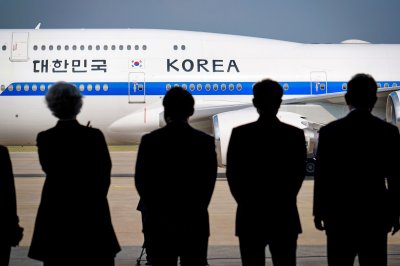South Korea seeks exemption as Canada tightens steel tariff-rate quotas

Dec. 21 (Asia Today) — South Korea’s industry ministry said Sunday it has raised concerns with Canada over strengthened tariff-rate quota measures on steel set to take effect Dec. 26 and asked Ottawa to consider steps including an exemption or expanded quota for South Korea.
A tariff-rate quota (TRQ) is a trade system under which a limited volume of steel imports can enter Canada at a lower or zero tariff, while shipments exceeding that quota face much higher duties. Under Canada’s revised measures, the amount of South Korean steel that can enter Canada at the lower tariff rate will be reduced, and shipments above that limit would face much higher tariffs.
The Ministry of Trade, Industry and Energy said Trade Negotiations Director General Yeo Han-gu met Canadian Minister of International Trade Maninder Sidhu and Canadian Deputy Minister of Foreign Affairs Ali Essassi in Toronto on Dec. 18 local time and conveyed the position of South Korean industry on the measures.
Canada plans to lower the TRQ utilization rate for free trade agreement partners including South Korea from 100% to 75% and for non-FTA countries from 50% to 20%, the ministry said. Imports exceeding the quota would face a 50% tariff and a new 25% tariff would be applied to certain steel derivative products, according to the ministry.
The ministry said Yeo traveled to Canada one week after a phone call with Sidhu on Dec. 11 to hold detailed discussions. It said he asked Canada to take favorable measures for South Korea, citing large-scale investments by South Korean companies in Canada including battery makers and cooperation potential in sectors such as steel, electric vehicles, batteries, energy and critical minerals.
Yeo also said some steel items, including pipelines used in Canada’s oilsands crude production, are difficult to produce domestically and are largely supplied through imports, including from South Korea. Tightening TRQ measures on South Korean steel could affect both South Korean exporters and Canadian industry, he said, according to the ministry.
The ministry said Yeo and Sidhu agreed to establish a new strategic sector dialogue channel between trade ministers under the Korea-Canada free trade agreement, which marks its 10th anniversary this year. They also agreed to set up a hotline for discussions on issues including steel, electric vehicles, batteries, energy and critical minerals, the ministry said.
Sidhu proposed using Canada’s duty drawback system, which the ministry said remains in operation through the end of January 2026 for certain steel items not produced domestically. The ministry said South Korea plans to continue consultations on steel TRQs through high-level and working-level channels.
The ministry said Yeo also met South Korean companies operating in the Toronto area in sectors including steel, autos, home appliances and minerals to hear concerns about trade uncertainty. It said he visited a battery plant backed by LG Energy Solution in Windsor on Dec. 19 and toured the facilities.
The ministry said Yeo later held a meeting in Detroit with South Korean auto parts companies and reviewed issues including Section 232 tariffs on automobiles, Mexico’s announced tariff increases on non-FTA countries and trends related to USMCA revisions. It said he also met potential foreign investors in the auto parts sector to discuss investment opportunities tied to South Korea’s smart factory and manufacturing AI capabilities.
Yeo said shifting trade conditions across the United States, Canada and Mexico pose challenges for South Korean firms operating locally, but also create opportunities tied to changes in North American supply chains, the ministry said.
– Reported by Asia Today; translated by UPI
© Asia Today. Unauthorized reproduction or redistribution prohibited.
